BOSCH + DFB
Book Demo
September 15, 2020
Bosch and the DFB Rely on Mental Training
Around ten years ago, Petra Martin, Head of the Center of Competence "Leadership" at Robert Bosch Automotive Electronics, was tasked with developing a program for the tech giant to equip its leadership team for the transformation from an industrial supplier to a software company. The leaders were expected to drive this change within their teams. While working on the concept, Martin realized that one crucial aspect was missing: “Alongside the theoretical elements, we needed a linking pin between knowing and doing,” she explains. “I thought of something that focused strongly on experience. Then I read an article in Manager Seminare about how mindfulness had been integrated into leadership training. And that convinced me.” (Read the full interview with Petra Martin here.)
What is Mindfulness?
Mindfulness describes “a state of mental presence in which a person is acutely aware of their immediate surroundings, body, and emotions, without distraction or judgment.” The principle originates from Buddhist teachings and meditation practices and has been extensively researched scientifically for years. Inspired by the 14th Dalai Lama, researchers began studying the brain activity of monks in MRI scans about 15 years ago. The images clearly showed how long-term meditation had changed the monks’ brain structures. It is now undisputed that regular meditation can positively influence cognitive and emotional processes. Since then, mindfulness has gained broad recognition — including in the corporate world.
iga Report 45: Mental training positively impacts individual stress perception
The iga Report 45 (2021) provides in-depth insights into the effects of various mindfulness training methods in the workplace. The evaluation of 105 studies shows that nearly all programs — including MBSR (Mindfulness-Based Stress Reduction), meditation courses, breathwork, yoga, and Qi Gong — have “significant effects on mental health.” Mindfulness training in particular significantly reduces perceived stress. MBSR programs especially improve well-being, recovery, self-awareness, and work-related factors like concentration and motivation.
At Bosch, 2,500 leaders have completed the mental training program
More and more companies are leveraging the mechanisms of mindfulness training in their learning and health programs. In Petra Martin’s division at Bosch, 2,500 leaders have now completed the mental training. “Mindfulness is fully established here,” she explains. “Many leaders have realized: to stay productive, I also need a kind of psychological hygiene. I must know how to calm my mind and regain focus. Mental training is not about escaping stress — it’s about moving toward focus and composure.”
For professional athletes too, focus and composure are essential — especially when peak performance is required on demand. “One benefit of mental training is that it can be done anytime, anywhere,” says Christoph Herr, Sports Psychology Coordinator at the German Football Association (DFB). “In challenging situations, one can use short breathing techniques or brief visualizations. For example, 10–15 minute sessions in the evening can help prepare for or reinforce routines ahead of competition or training.” (Read the full interview with Christoph Herr here.)
To help players learn different relaxation techniques, the DFB used the Mindance app for mental health with two youth national teams. “The app allowed our players to train their cognitive flexibility in terms of perception and decision-making,” Herr explains. “It also helps users learn self-awareness and reflection techniques, and to balance tension and relaxation.”
Bosch employees train mental strength using the Mindance app
Developing mental strength is no longer a concern just for leaders and pro athletes. “The past 18 months brought significant changes to people's lives. Long-term remote work and homeschooling demanded much from many,” says Prof. Dr. Ingo Froböse in the “DKV Report 2021 – How Healthy is Germany?”. “We must learn — individually and collectively — how to prevent and manage stress.”
Bosch is also investing in employee development and launched the 10-week “Mindfriends” training under Petra Martin. It combines intensive meditation practice with the Mindance app. “Participants are placed in ‘body groups’ — people who fit well or work at the same location. They receive a workbook and the Mindance app,” Martin explains. “We have a completion rate of over 80%. During COVID, it was even higher because people craved more ‘me time’ and mental strength — though you could call it something else.”
iga Report 45 confirms Bosch’s approach: group-based formats are more effective than solo training. “Group settings foster social interactions and help develop interpersonal skills like empathy,” report the authors. Practicing in a group also improves consistency — those who train with colleagues stick with it longer.
Our brain is like a muscle — it can be trained
But what actually happens in the brain during mental training, such as mindfulness meditation? “Mental training is like physical training — but for our brain,” explains Lukas Stenzel, Head of Product at Mindance. “With systematic mental training, we can improve how our mind functions — from concentration to emotional intelligence.”
In practice, that means people who regularly train mindfulness and mental strength not only gain focus, but change how they relate to others. Petra Martin observed this at Bosch’s Salzgitter site: “There used to be a harsh tone in the factory halls — not out of malice, but it was common for foremen to shout. Now, I notice a change: some of those same foremen now consciously shift perspective and ask themselves: How does what I’m saying come across? How does this person think? How can I persuade them?”
Mental training: Awareness of overload is growing
According to Petra Martin, these interpersonal components are key. “The challenges of the future can only be tackled together with people. We can't solve them through new processes or structures alone. I believe awareness of this has grown.” Leadership, she says, is about relationships. “I can only lead if people choose to follow me — and that requires a connection.”
Two major employee surveys across Bosch confirmed this: “Leaders who completed the mental training received the highest approval ratings. They reflect more deeply — many continue mindfulness practices. You could call them more mature leaders. The behaviors we value in leadership are especially visible in them.”
Are mindfulness-practicing leaders happier and healthier? Petra Martin won’t speculate. “But in every accompanying survey, one thing was clear: leaders familiar with mental training are more aware of their limits. They notice overload earlier — and know when it’s time to pause.”





